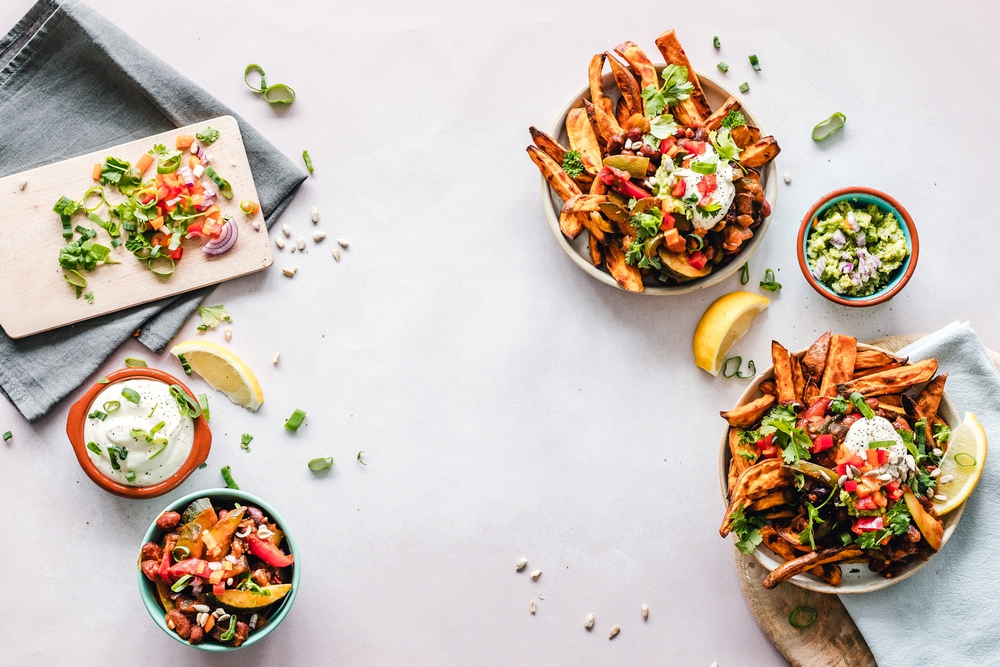 Written by Veronica Turner.
Written by Veronica Turner.
Integrating holistic health into medical practice marks a pivotal shift towards comprehensive patient care. This evolution incorporates advanced technologies and traditional healing practices to enhance outcomes and professional growth.
Read on for a summary of the innovative ways embracing holistic approaches are transforming modern medicine.
Traditional Healing Practices: Bridging Ancient Wisdom with Modern Medicine
Traditional healing practices like acupuncture and Ayurveda are finding their place in contemporary medicine. Hospitals integrate these methods alongside conventional treatments to address chronic conditions and enhance overall well-being.
Studies show that combining ancient wisdom with modern techniques can reduce stress and improve recovery rates. This fusion offers patients a balanced approach to health care.
Advanced Training Programs for Medical Assistants in Holistic Health
Medical assistant training programs now incorporate holistic health practices, equipping students with skills beyond traditional clinical procedures. This includes courses on mindfulness, nutrition, and integrative therapies.
By understanding these diverse approaches, medical assistants can support physicians more effectively and provide comprehensive patient care. Such training ensures a workforce ready to meet the evolving demands of modern healthcare.
Nutritional Counseling as a Core Component of Patient Care
Nutritional counseling is becoming a vital component of patient treatment plans, addressing diet-related issues that impact overall health. Healthcare providers collaborate closely with nutritionists to develop personalized dietary recommendations tailored to individual needs.
This team-based approach helps manage chronic diseases like diabetes and hypertension more effectively while promoting long-term wellness through improved eating habits. By focusing on individualized nutrition, patients receive targeted support for sustained health improvements.
Integrating Mindfulness and Meditation into Clinical Settings
Patients engage in guided meditation sessions during hospital stays or clinic visits, significantly reducing anxiety levels before surgeries or procedures.
Research backs these benefits; mindfulness techniques enhance emotional resilience, promoting faster recovery by fostering a tranquil mind-body connection within the healthcare environment. This holistic approach not only alleviates stress but also optimizes overall patient well-being.
The Role of Telemedicine in Delivering Holistic Care
Telemedicine extends the reach of holistic care by connecting patients with various specialists remotely for consultations on integrative therapies like yoga or nutritional advice, regardless of geographical constraints.
Virtual platforms facilitate continuous monitoring of lifestyle changes recommended by practitioners. As telehealth technology advances, it enables real-time adjustments, ensuring personalized holistic care remains consistent across distances.
Utilizing AI to Personalize Holistic Treatment Plans
AI algorithms analyze vast amounts of patient data, tailoring individualized holistic treatment plans based on unique needs. These intelligent systems consider factors like genetic predispositions, lifestyle choices, and medical histories when recommending complementary therapies such as herbal supplements or exercise regimens.
AI enhances precision medicine capabilities within holistic frameworks, improving outcomes through highly customized interventions specifically tailored to each patient’s profile. This blend of technology and personalized care represents a new frontier in holistic health.
The Impact of Wearable Technology on Holistic Health Monitoring
Wearable technology, such as smartwatches and fitness trackers, transforms holistic health monitoring by offering real-time data on physical activity, sleep patterns, and vital signs. These devices allow patients to track their progress in managing chronic conditions through lifestyle adjustments.
Healthcare providers can access this ongoing stream of information to provide more accurate recommendations tailored to individual needs. This tech-driven approach ensures a seamless integration of holistic health practices into everyday life.
Integrating Chiropractic Care into Conventional Medical Practices
Chiropractic care is increasingly integrated into conventional medical practices as part of a comprehensive approach to musculoskeletal issues. Hospitals and clinics now include chiropractors in multidisciplinary teams that address back pain, joint problems, and overall spinal health.
Combining chiropractic adjustments with traditional treatments enhances patient outcomes by reducing reliance on medication, improving mobility, and promoting faster recovery rates. This integration exemplifies the shift towards more collaborative healthcare models.
Holistic Approaches to Pain Management: Beyond Opioids
Holistic approaches offer viable alternatives for pain management beyond opioids. Techniques such as acupuncture, massage therapy, and biofeedback provide non-pharmacological options for patients with chronic pain conditions.
These methods focus on treating the root causes rather than just masking symptoms. By incorporating these therapies alongside conventional medicine, practitioners can reduce opioid dependence while providing effective pain relief solutions.
Leveraging Genomic Data for Personalized Wellness Plans
Genomic data is crucial for creating personalized wellness plans based on an individual’s genetic makeup. Advanced genomic testing can identify predispositions to certain diseases or conditions, allowing for proactive measures through diet changes, supplements, or specific exercise routines.
This precise approach provides patients with actionable insights into their unique health profiles, enhancing preventive care strategies within holistic frameworks.
Mental Health Integration: From Stigma to Standard Practice
Overcoming the stigma of mental illness involves incorporating psychological support into primary care settings. Patients receive mental well-being assessments during routine check-ups, allowing for early detection and intervention.
Collaborative care models feature psychiatrists working with general practitioners to provide comprehensive treatment plans that address both physical and emotional health. This paradigm shift acknowledges mental health as essential to overall wellness.
Environmental Factors and Their Role in Holistic Health Strategies
Addressing air quality, exposure to toxins, and environmentally influenced lifestyle choices are essential for comprehensive well-being plans. Practitioners recommend integrating green spaces into urban designs to boost community resilience against environmental stressors.
Additionally, adopting eco-friendly practices in daily life promotes healthier living environments for individuals and communities alike.
The Future of Functional Medicine in Primary Care
The future of functional medicine is in its growing use within primary care. It focuses on finding the root causes of diseases and preventing them by examining detailed patient histories and conducting biochemical tests to identify underlying imbalances.
Personalized treatment plans include dietary changes, lifestyle modifications, and supplements to promote optimal health. As functional medicine becomes more common in traditional healthcare, it promises a transformative shift toward preventive, individualized, patient-centered care.
The Path Forward: Embracing Comprehensive Patient Care Approaches
The future of healthcare lies in embracing comprehensive patient care approaches that integrate holistic health practices. By combining traditional medical treatments with innovative, personalized wellness strategies, practitioners can address the multifaceted needs of their patients.
This shift towards a more inclusive model not only enhances patient outcomes but also fosters a deeper connection between providers and those they serve. As we move forward, adopting these holistic methods will be crucial in delivering truly effective and compassionate healthcare.
Author Bio: Veronica Turner is a health and lifestyle writer with over 10 years of experience. She creates compelling content on nutrition, fitness, mental health, and overall wellness.
Please also review AIHCP’s Holistic Nursing Certification program and see if it meets your academic and professional goals. These programs are online and independent study and open to qualified professionals seeking a four year certification.

 Written by Veronica Turner
Written by Veronica Turner

